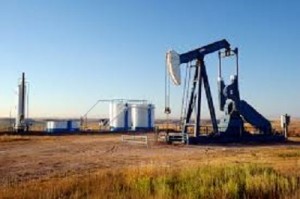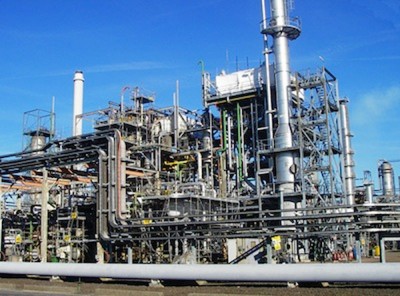 The growing supply glut in the global oil market is a threat to Nigeria’s projected production target for next year, industry experts have said.
The growing supply glut in the global oil market is a threat to Nigeria’s projected production target for next year, industry experts have said.
Other threats include the maturity of some fields and the global economic outlook.

The Federal Government had last week approved the Medium-Term Expenditure Framework, with a projected crude oil production of 2.2 million barrels per day for next year’s budget, down from 2.2782 million bpd in the 2015 budget.
The supply glut in the world oil market, which is said to be oversupplied to the tune of 1.5 million to two million bpd, is expected to be exacerbated by the full return of Iran to the market after the expected lifting of Western sanctions.

Recently, the Organisation of Petroleum Exporting Countries, in its policy meeting in Vienna, failed to address the glut in the market as it decided to retain its production at current levels, further swelling a glut that has lowered prices.

Ahead of the meeting, Iran had said it would not consider any production cut until it restored output scaled back for years under sanctions, with the country’s oil minister, Bijan Zanganeh, reiterating that Iran would proceed with its plan to boost output by 500,000 bpd immediately upon the lifting of sanctions, which he said would be early next year.
OPEC, whose members pump out more than one third of world oil, is currently producing above its official target of 30 million bpd. Actual daily production is estimated at 31.5 million bpd.
Commenting on Nigeria’s projected production target for 2016, the Head of Energy Research, Ecobank Capital, Mr. Dolapo Oni, said, “Firstly, I don’t think we can achieve it. Our production this year alone has been less than that, average of 2.1 million bpd.”
He said with the field maturity in the country’s larger fields, production had been declining since 2010 and would continue doing so in 2016.
“Nigeria is likely to record just average of two million bpd in 2016, even with some of the new production expected.
“Secondly, even if we are able to achieve that volume, we have the potential of Libya ramping up output also next year, creating a glut in our section of the market – the Atlantic Basin,” Oni added.
The Director, Emerald Energy Institute, University of Port Harcourt, Prof. Wumi Iledare, said, “Regarding a 2.2 million bpd production, I hope the government has a good understanding of the key difference between marketed production and technical production.
He said it may be a little optimistic to expect to sell that much next year looking at the global economic outlook.
“Perhaps, this projection for production could be realised with discount pricing to make Nigeria oil competitive with tight light oil in the US market,” Iledare added.
The professor emeritus, Louisiana State University Centre for Energy Studies, United States, said, “It is my hope that Nigeria will wake up soon and stop basing budget on instruments outside its control and that are riddled with uncertainty. Price, market production, and investment to expand capacity are not within government control.”
The OPEC decision sent the global benchmark crude Brent into heavy fall on Monday, when it fell to $41 per barrel, the lowest level in almost seven years. It fell below the $40 per barrel mark on Tuesday before heading back above $40.
Brent, against which most of the world’s oil including Nigeria’s is priced, has fallen by more than 60 per cent in the past 18 months, putting pressure on oil-exporting countries including Nigeria.
 MMS PLUS NG – Maritime, Aviation, Business, Oil and Gas News Online Newspaper with coverage in Maritime, Oil and Gas, Aviation, Power and Energy as well as Financial News
MMS PLUS NG – Maritime, Aviation, Business, Oil and Gas News Online Newspaper with coverage in Maritime, Oil and Gas, Aviation, Power and Energy as well as Financial News









